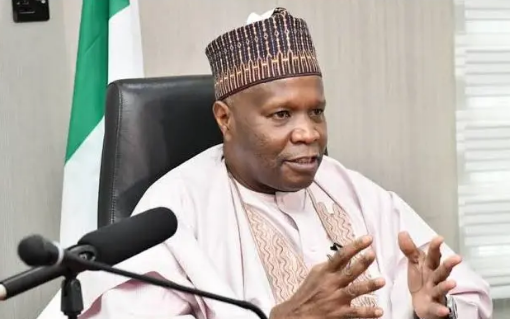In response to recent concerns raised by the Northern Governors’ Forum regarding the tax reform bills, the Presidency has emphasised that the initiatives were aimed at enhancing national efficiency rather than targeting any specific region.
The regional governors bloc, led by Gombe State governor, Muhammed Inuwa Yahaya, voiced its opposition during a meeting held on October 28, 2024 in Kaduna, where they expressed apprehensions about a new derivation-based model for Value-Added Tax (VAT) distribution.
However, the Presidency has clarified that the reforms will benefit all states across Nigeria.
Special Adviser to President Bola Tinubu on Information and Strategy, Bayo Onanuga, asserted that the reforms were “not against the North” but are intended to optimise the country’s tax system.
“These initiatives emerged from a comprehensive review of existing tax laws to enhance efficiency and eliminate redundancies,” Onanuga stated, reinforcing the administration’s commitment to a fair tax structure,” he stated.
LEADERSHIP reports that the proposed reforms, currently under consideration by the National Assembly, consist of four key bills designed to modernize Nigeria’s tax landscape:
Nigeria Tax Bill: Aims to eliminate unintended multiple taxation and simplify tax obligations for businesses and individuals nationwide.
Nigeria Tax Administration Bill (NTAB): Proposes new rules to harmonize tax administrative processes across federal, state, and local jurisdictions.
Nigeria Revenue Service (Establishment) Bill: Seeks to rename the Federal Inland Revenue Service (FIRS) to the Nigeria Revenue Service (NRS), reflecting its role as the revenue agency for the entire federation.
Joint Revenue Board Establishment Bill: Proposes the creation of a Joint Revenue Board and an Office of Tax Ombudsman to address taxpayer complaints.
Onanuga clarified that, “the reforms will not increase the number of taxes” but will instead streamline existing frameworks, ensuring that “tax rates or percentages will remain the same.”
He assured that the changes were designed to support a growth-oriented economy and will not lead to job losses, but rather “stimulate new avenues for job creation.”
Critics have expressed concerns over the proposed derivation-based VAT distribution model, but the presidency emphasized that the reforms are designed to correct existing inequities. “The current VAT distribution model is flawed,”
Onanuga further explained, noting that it is based on where taxes are remitted, rather than where goods are consumed. The new model will consider the location of supply and consumption, ensuring that states that produce essential goods do not miss out on tax revenues simply because their products are VAT-exempt.
The Presidency urged the National Assembly to consider these critical reforms, which are not only essential for improving tax efficiency but are also vital for addressing the developmental needs of all Nigerians.
“These reforms are meant to improve the lives of Nigerians and will not undermine any part of the country,” Onanuga stated, reinforcing the inclusive intent behind the proposed legislations.





